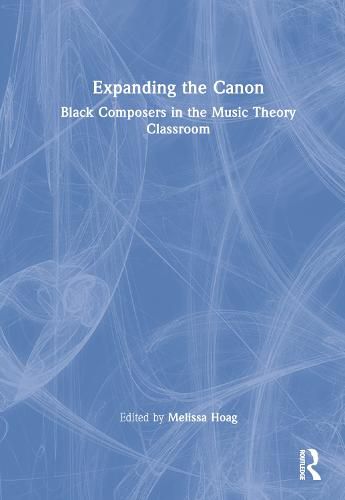Readings Newsletter
Become a Readings Member to make your shopping experience even easier.
Sign in or sign up for free!
You’re not far away from qualifying for FREE standard shipping within Australia
You’ve qualified for FREE standard shipping within Australia
The cart is loading…






Directly addressing the underrepresentation of Black composers in core music curricula, Expanding the Canon: Black Composers in the Music Theory Classroom aims to both demonstrate why diversification is badly needed, and help faculty expand their teaching with practical, classroom-oriented lesson plans that focus on teaching music theory with music by Black composers.
This collection of twenty-one chapters is loosely arranged to resemble a typical music theory curriculum, with topics progressing from basic to advanced, and moving from fundamentals, diatonic harmony, and chromatic harmony to form, popular music, and music of the twentieth century. Some chapters focus on segments of the traditional music theory sequence, while others consider a single style or composer. Contributors address both methods to incorporate the music of Black composers into familiar topics, and ways to rethink and expand the purview of the music theory curriculum. A foreword by Phil Ewell and an introductory narrative by Teresa Reed describing her experiences as an African-American student of music set the volume in wider context.
Incorporating a wide range of examples by composers across classical, jazz, and popular genres, this book helps bring the rich and varied body of music by Black composers into the core of music theory pedagogy and offers a vital resource for all faculty teaching music theory and analysis.
$9.00 standard shipping within Australia
FREE standard shipping within Australia for orders over $100.00
Express & International shipping calculated at checkout
Directly addressing the underrepresentation of Black composers in core music curricula, Expanding the Canon: Black Composers in the Music Theory Classroom aims to both demonstrate why diversification is badly needed, and help faculty expand their teaching with practical, classroom-oriented lesson plans that focus on teaching music theory with music by Black composers.
This collection of twenty-one chapters is loosely arranged to resemble a typical music theory curriculum, with topics progressing from basic to advanced, and moving from fundamentals, diatonic harmony, and chromatic harmony to form, popular music, and music of the twentieth century. Some chapters focus on segments of the traditional music theory sequence, while others consider a single style or composer. Contributors address both methods to incorporate the music of Black composers into familiar topics, and ways to rethink and expand the purview of the music theory curriculum. A foreword by Phil Ewell and an introductory narrative by Teresa Reed describing her experiences as an African-American student of music set the volume in wider context.
Incorporating a wide range of examples by composers across classical, jazz, and popular genres, this book helps bring the rich and varied body of music by Black composers into the core of music theory pedagogy and offers a vital resource for all faculty teaching music theory and analysis.